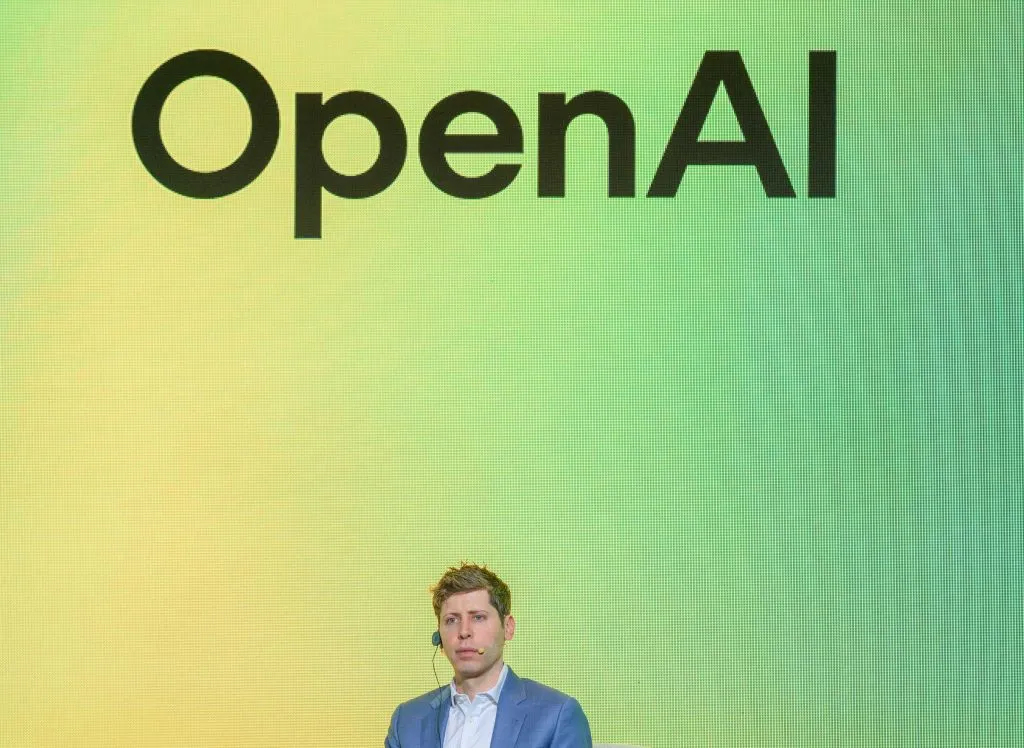The core financial issue driving major AI transactions.

Image Credits:Kim Jae-Hwan/SOPA Images/LightRocket / Getty Images
SoftBank and OpenAI Launch Joint Venture: Crystal Intelligence in Japan
This week, SoftBank and OpenAI introduced a groundbreaking 50-50 joint venture called “Crystal Intelligence,” aimed at delivering enterprise AI tools in Japan. While the initiative appears to be a simple international expansion, it brings forth a series of critical questions regarding the financial dynamics within the AI sector. As discussions unfold, doubts arise about whether major deals in the artificial intelligence landscape are generating tangible economic value or simply redistributing existing capital.
The Structure of the Joint Venture
The formation of Crystal Intelligence marks a distinctive partnership between two influential players in the tech arena. SoftBank—known for its extensive technology investments—and OpenAI, a leading AI research organization, are pooling resources to tap into the growing demand for AI solutions in Japan.
This joint venture represents a fusion of OpenAI’s cutting-edge technologies with SoftBank’s deep understanding of the local market. This collaboration is poised to deliver AI tools that cater specifically to Japanese enterprises, addressing unique needs and regulations. However, the underlying concerns about the economic implications of such ventures cannot be overlooked.
Questions Surrounding Economic Value
One of the most pressing questions sparked by this joint venture is whether deals like these produce true economic benefits or merely circulate funds among major players. With SoftBank already a significant investor in OpenAI, critics are pondering whether the joint venture will lead to innovation and new job creation or simply act as a mechanism to shuffle money within the ecosystem.
In an environment where massive capital inflows into AI initiatives have become the norm, skepticism regarding the actual economic impact is vital. Observers are increasingly wary of whether these large investments are generating scalability and operational improvements or if they’re perpetuating a cycle of financial maneuvering without substantial output.
Insights from the Equity Podcast
The recent episode of TechCrunch’s Equity podcast delves deeper into the implications of this joint venture. Hosts Kirsten Korosec, Anthony Ha, and AI Editor Russell Brandom analyze the skepticism surrounding the deal and what it signals about the sustainability of the current AI investment landscape.
The podcast highlights that while the enthusiasm for AI technology continues to grow, the financial ecosystem supporting it may not be as robust as previously thought. Investors and stakeholders are urged to reconsider the long-term viability of such ventures against a backdrop of increasing questions about actual market value creation.
The Future of AI Investments
With SoftBank and OpenAI venturing into the Japanese market through Crystal Intelligence, the discussion shifts toward the future of AI investments. The fundamental question is whether massive funding rounds for AI startups and initiatives will result in genuine advancements or intensify a speculative bubble.
Investors may need to adjust their expectations regarding return on investment, particularly when considering enterprise solutions that may take years to yield significant returns. This cautious approach is necessary for building a sustainable future in the tech industry, where hype often overshadows grounded economic analysis.
The Role of Innovation in Economic Growth
For any joint venture or investment to produce real value, innovation should be at the forefront. As SoftBank and OpenAI embark on this initiative, they must focus on delivering unique and effective AI tools that can revolutionize how businesses in Japan operate. Real economic value is derived not just from capital investments, but from innovations that can lead to improved efficiency, productivity, and ultimately job creation.
In this context, the success of Crystal Intelligence will depend on its ability to address specific pain points faced by Japanese enterprises while fostering a culture of innovation.
Conclusion
The launch of Crystal Intelligence by SoftBank and OpenAI is a significant step in the international expansion of AI tools. However, it raises pressing questions about the true economic impact of such joint ventures. As the conversation unfolds, industry experts and stakeholders must critically assess whether these collaborations can translate into genuine value creation or if they merely represent a financial shuffle within the existing ecosystem.
The insights from TechCrunch’s Equity podcast further illuminate the skepticism that surrounds AI investments, urging a reassessment of what sustainable growth looks like in this rapidly evolving field. For the future of AI to be bright, a heightened focus on innovation over mere financial maneuvering will be crucial.
Listen to the Equity Podcast
For those interested in exploring more about the implications of these developments, subscribe to the Equity podcast on platforms like Apple Podcasts, Overcast, and Spotify. Stay updated with their discussions on Twitter and Threads by following @EquityPod.
In conclusion, the intersection of technology and investment in AI continues to unfold, presenting both opportunities and challenges. As the landscape evolves, stakeholders must remain vigilant to ensure that they prioritize true economic value in their pursuits.
Thanks for reading. Please let us know your thoughts and ideas in the comment section down below.
Source link
#circular #money #problem #heart #AIs #biggest #deals





